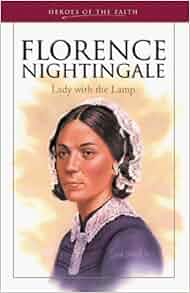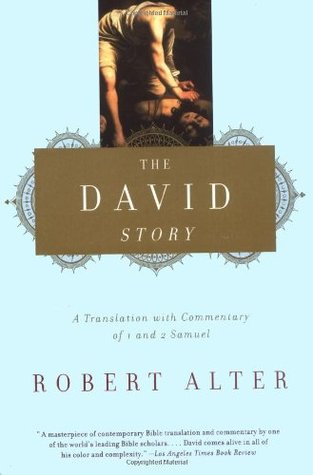The following post is my penultimate "blog" from this semester's honours class on Paths of Faith and explores how several texts--especially the Bhagavad Gita--combined with T.S. Eliot's Four Quartets to create a powerful experience intellectually, spiritually, and emotionally.
We only live
In the Midst
Only Suspire
Of Life we are
Consumed by either fire
In death
Or fire[1]
“My words echo / Thus, in your
mind,” says the narrator of T.S. Eliot’s Four
Quartets to me as I read the Bhagavad Gita[2].
My mind is an echoing chamber. I discuss the Bhagavad Gita in class for an hour
and walk out a little unsure if my feet touch the ground or some winged thing
will fly out of my mouth. I can feel the echoes flying and bouncing under my
skin, in my mouth. Outside it is spring, the world hoping to be again a garden,
just for this moment in time.[3] “[E]echoes inhabit the garden… shall we
follow?”[4]
One does not necessarily love
something because they understand it. I want to be a scholar (often considered
to be unattached, approaching the text in objective ways) but the reasons that
I have enjoyed the Bhagavad Gita (and the Tao) so much are not precisely
measured planks with which to build an argument or even a theory. I become high
reading these texts because of a tangle of affects and feelings—echoes. Eliot’s
words in my mind spin and scatter everywhere and I love the Bhagavad Gita because
T.S. Eliot first loved it.[5]
I wonder: Can I think in a
scholarly manner if I am so… well, attached
to a text? Perhaps to be fascinated and possessed by a text is itself a form of
detachment because the reader opens themselves
to what the text offers, not regarding whether the activity of engagement
brings recognition or visible results. I would like to think I would be writing
this blogpost even if a grade did not depend on it, but I know myself enough to
know that I probably would not be writing a sustained scholarly paper in about
a week if it were not for the grade. However, reading the Bhagavad I think I
could not take on a better motto for the end of term than “You have a right to
your actions, but never to your actions’ fruits. Act for the action’s sake. And
do not be attached to inaction.”[6] Or
as Eliot says, “For us there is only the trying. The rest is not our business.”[7]
Is this nihilism? Does the idea
found in the Bhagavad Gita of Brahman without attributes or qualities--Unmanifest, “beyond both is and is not"--mean that life and death are
unimportant?[8] Krishna’s instruction,
“Therefore you must fight, Arjuna” might seem to disregard the lives of those
slain in battle. Eliot’s exploration of the line (perhaps translated “Fare
forward” in whatever translation he was influenced by) certainly emphasizes
“the time of death [which] is every moment.”[9]
Why should the cycle of life and death be nihilistic? This is an issue we in
Scholars began to wrestle with as we contemplated the ‘birth’ and ‘decay’ of
countless species in an evolutionary universe, but perhaps the intensely
Christian Middle Ages also had an understanding of this in the phrase “In the
midst of life we are in death.”[10]
The Bhagavad teaches that those only who are not “watching for results” can
“act for the well-being of the whole world.”[11]
Perhaps only in utterly giving up claim to one’s own actions can a person act
completely devoid of selfish ambition. Perhaps only in feeling death and life
circulating as a system together can the miracle of life begin to be
apprehended.
But these
are only “hints and guesses, / Hints followed by guesses.”[12] I
set out to write this blog on why the overlapping echoes of these texts beating
in my mind feel like joy and love. Instead, I have travelled into darkness and
find words inadequate, cracking, “decay[ing] with imprecision”—incapable of
letting you, reader, into the echoing chamber of my mind.[13]
However, as Eliot says, in the time of waiting—being detached from hope, love,
perhaps even thought—“the darkness shall be the light.”[14]
The Bhagavad Gita, Four Quartets (and
the Tao) are texts alive with paradox, but perhaps that is why they are so
healing. Life is paradoxical and perhaps the only peace is to enter more deeply
into the paradox. Krishna tells Arjuna that, like firewood in flames, “all
actions are turned to ashes in wisdom’s refining flames.”[15]
Perhaps the paradox cannot be grasped. Eliot (also quoting Julian of Norwich) concludes:
All manner of thing
shall be well
When the tongues of
flames are in-folded
Into the crowned knot
of fire
And the fire and the
rose are one.[16]
Perhaps the
beauty of that metaphor is enough, both to rest and rejoice in as an
individual, and to act in and explore as a Scholar.
Works
Cited
Eliot, T.S. Four Quartets. Collected Poems 1909-1962. London: Faber and Faber,
1963. Print. 189-223.
Mitchell, Stephen. Bhagavad Gita: A New Translation. New
York: Harmony, 2000. Kindle.
[1]Here I interface “Little Gidding” IV 212-13 with the phrase “In the midst of
life we are in death.”
[2]
Note on citations: Four Quartets is,
obviously, divided into four sections: “Burnt Norton”, “East Coker,” “The Dry
Salvages,” and “Little Gidding.” Ironically, however, each “quartet” in fact
contains 5 sections. Consequently, I will be citing the name of the “quartet”,
number of the section, and then the line number within it, similar to MLA
conventions for a play. The quote in the first line is from “Burnt Norton”
I.14-15.
[3]
For Eliot, of course, Eden—the lost garden.
[4]
Line 18.
[5]
Some of the echoes of the Bhagavad Gita in Four Quartets are explicit
(especially in the opening and closing lines of “The Dry Salvages” III) while
others would require more teasing out. However, the influence of the Bhagavad
Gita on Eliot’s poem is so pervasive that any close reading that fails to take
it into account can hardly be considered comprehensive. Since this is not a
formal essay, I will not be providing a review of the literature.
[6]
Kindle locations 433-434
[7]
“East Coker” V. 18
[8]
2.18 or Kindle location 387.
[9]
“Dry Salvages” III.159
[10]
“Media vita in morte sumus.” Wikipedia. 12
March 2016. Web. 8 April 2016.
[11]
3.25 or Kindle location 515.
[12]
“The Dry Salvages” IV.
212-213.
[13]
“Burnt Norton” V. 152.
[14]
“East Coker” III 128
[15]
4.37 or Kindle 604.
[16]
“Little Gidding” V. 256-259.
 There is no frigate like a book
There is no frigate like a book





